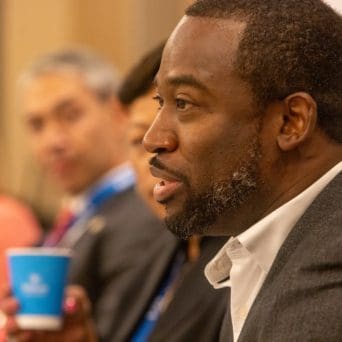CityHealth and the National Institute of Early Education Research (NIEER) recently convened Pre-Kindergarten policy leaders from cities across the country to exchange ideas and best practices on how to establish high quality, accessible early childhood education programs in localities. This blog presents a read-out of that session.
I have spent much of my political career working to expand access to high-quality, affordable Pre-K for Seattle’s young children, and I am proud of the Seattle Preschool Program that came out of that work. I also recognize that our work is far from over, as thousands of children – many of them low-income or children of color – enter kindergarten unprepared to succeed. When the opportunity arose to participate in the CityHealth through Pre-K Summit, and spend 2 ½ days in Detroit learning about evidence-based strategies to develop a quality Pre-K program and engage with early childhood leaders from around the country – I jumped at the chance to do so.
When I arrived at the opening reception, hosted by the Kresge and W.W. Kellogg Foundations, on behalf of Hope Starts Here, Detroit’s early childhood initiative, I knew I would leave the summit with more tools in my toolbox than when I arrived. Looking around the room, I felt like the future of young children was in good hands. Leaders of city Pre-K programs, policy advisors for mayors, representatives from school districts, a parent advocate, workforce leaders, and philanthropists all took time out of their busy daily schedules to think about how to improve their city’s education system for their earliest learners and, more importantly, they did so by talking across sectors and geographic lines in search of commonalities and partnership.
Throughout the next two days, cities just building their Pre-K programs were able to learn from cities that have been successful at doing so, like Boston and San Antonio. Political appointees were able to learn from NIEER researchers about the evidence behind what makes a quality early child education program effective, and implementers were able to learn from beneficiaries – parents and workforce representatives – about what is needed on the ground so they can think through how to get there.
From San Francisco to Philadelphia, Albuquerque to Detroit, Austin to Seattle, Fresno to Dallas, we all know that all children deserve high-quality Pre-K to prepare them for kindergarten and a successful future, and need teachers who are prepared to teach them and are well-compensated for doing so. By building strong relationships and a learning community with the people working within our own cities, and across the country, we will all return to our day jobs as stronger advocates for our city’s children.
In small and large groups, we explored the importance and the challenges of building strong relationships between city government and school districts, of aligning various programs, and of using evidence to replicate what works. We discussed how to build data systems to ensure the information that is needed to reach these goals is accessible to all who would benefit from it.
As one participant said, “Quality Pre-K is the social justice issue of our day.” We raised the hard questions of equity – for our students, our families, and our early childhood workforce. We examined what quality means and who needs to be involved to get there. We thought about how to make early childhood inclusive for our dual language learners and for those who learn differently. We started these conversations and recognized how critical it is to continue them – inside and outside of City Hall.
Further Learning:
- See where your city lands on CityHealth’s assessment of Pre-K in cities here: http://cityhealthdata.org/policy/cityhealth-pre-k-1518113514-37
- Read the Pre-K policy brief by CityHealth and the National Institute of Early Education Research here: https://www.cityhealth.org/prek-in-american-cities





